 When placing bets, it’s common for people to think about the outcome that they would most like to happen. Every time the Merseyside derby rolls around, for example, Evertonians will bet on their team to win in spite of the fact that Liverpool are the better team, even if the odds on an Everton victory aren’t all that favourable. A desire to see something happen can sometimes influence the manner in which people bet.
When placing bets, it’s common for people to think about the outcome that they would most like to happen. Every time the Merseyside derby rolls around, for example, Evertonians will bet on their team to win in spite of the fact that Liverpool are the better team, even if the odds on an Everton victory aren’t all that favourable. A desire to see something happen can sometimes influence the manner in which people bet.
When Hilary Clinton was up against Donald Trump in the 2016 US Presidential election, huge swathes of people placed bets on Clinton because they didn’t want to even countenance the idea of the former television star winning. If they had remained dispassionate, they’d have seen that the election was pretty much the toss of a coin according to polling and that the better value was on betting on a Trump win.
What Is The Optimism / Desirability Bias?
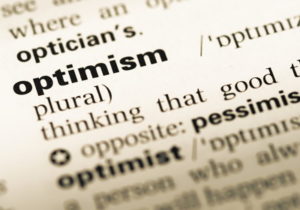 The idea being the optimism / desirability bias is that people are vulnerable to be influenced by their own desires. They will tend to be overly optimistic about an outcome in the future if they actively desire that outcome. It is a form of wishful thinking, leading people to ignore the facts and the likelihood of a specific thing happening in favour of something less likely but more preferable.
The idea being the optimism / desirability bias is that people are vulnerable to be influenced by their own desires. They will tend to be overly optimistic about an outcome in the future if they actively desire that outcome. It is a form of wishful thinking, leading people to ignore the facts and the likelihood of a specific thing happening in favour of something less likely but more preferable.
To take the idea to an extreme, imagine that a comet is hurtling towards the earth. The scientists and astronomers have all said that it is going to hit central Europe and wipe out all living creatures on the planet. A friend places a bet with you over whether or not you’re going to survive. Despite all of the evidence to the contrary, you place a bet on surviving because you want that to be true. This is the desirability bias in play.
Though optimism and desirability are technically two different thing, they work towards the same end when it comes to their influence upon our betting. An Evertonian will be optimistic about their club’s chances when playing a superior side in Liverpool, for example, choosing to place a bet that displays this optimism. A Reading fan might know that their team will lose to Manchester City in the FA Cup, but they desire a different outcome and so bet on that.
Playing The Lottery
 If you want a perfect example of desirability betting, look no further than the National Lottery or the EuroMillions. The odds on winning the former are one in 45,057,474, whilst it is 1 in 139,838,160 for the latter. Even so, millions of people play both forms of the lottery week-in, week-out, optimistically believing that they will smash those odds and be the person to win millions or even tens of millions of pounds.
If you want a perfect example of desirability betting, look no further than the National Lottery or the EuroMillions. The odds on winning the former are one in 45,057,474, whilst it is 1 in 139,838,160 for the latter. Even so, millions of people play both forms of the lottery week-in, week-out, optimistically believing that they will smash those odds and be the person to win millions or even tens of millions of pounds.
This is a bet placed in hope rather than expectation. We know that there is very little chance of winning the lottery, yet we play anyway because we desire a different outcome. In many ways, there are few bets as bad as the bet placed on the lottery, but the promise of outrageous returns combined with our desire to hit the jackpot means that, as gamblers, we completely ignore the facts in favour of our desired outcome.
We justify playing the lottery by saying things to ourselves such as ‘someone has to win it’, in spite of the fact that someone doesn’t always have to win it. Only if it got the point that so many tickets were bought that every single possible variation of the numbers on offer were covered would ‘someone have to win it’, but unless that happens then it could continue to roll over indefinitely without ever being won.
Yet that doesn’t fit in with what we desire as gamblers, so we ignore that fact and instead keep buying out tickets, believing that one day our luck will come in. Even if we played the same numbers for every draw in the mistaken belief that one day they would come in, we would have to play both draws for 39,953,760 weeks before we’d match the odds of the EuroMillions, at which point we’d have spent nearly £200 million buying our tickets.
Compulsive Gamblers Suffer The Worst
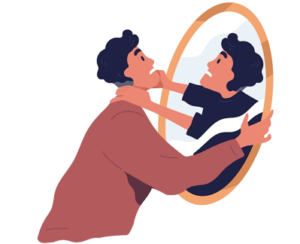 A research team led by Jean-Claude Dreher at the Centre de Neurosciences Cognitives in Lyon discovered that compulsive gamblers suffered from the optimism bias when placing bets. Those that engage in pathological gambling were more likely to suffer from an adjustment to their probabilistic reasoning, with probabilistic distortion being the most common issue that people with gambling problems had to deal with.
A research team led by Jean-Claude Dreher at the Centre de Neurosciences Cognitives in Lyon discovered that compulsive gamblers suffered from the optimism bias when placing bets. Those that engage in pathological gambling were more likely to suffer from an adjustment to their probabilistic reasoning, with probabilistic distortion being the most common issue that people with gambling problems had to deal with.
The research found that the desire to bet more was explained not by the exaggerated distortion of probability but by an increased optimism bias. To put it another way, the actual probability of winning a high-risk bet was irrelevant to compulsive gamblers, who would act as if the probability was always higher than it actually was. They also discovered that the intensity of the bias was linked to the severity of the symptoms.
Breaking Down The Optimism Bias
There’s a belief that the optimism / desirability bias can be broken down into four main elements, which are the goals, your cognitive biases, the information that you have about unknown factors and your mood. Here’s a look at each of the different elements:
Goals

Being optimistic is something that is encouraged in life because it feels good. For that reason, we tend to seek out evidence that will reinforce our optimism and ignore anything that might fuel our pessimism. We’ve looked at that elsewhere in the form of the confirmation bias, but it’s also a part of the optimism / desirability bias in terms of favouring things that boost our optimism and ignoring any sense of realism.
When you place a bet, it’s common to look for the evidence that supports your decision when, in actual fact, it is better practice to search for the arguments that go against the bet that you’re placing. Many people will look to use statistical betting models for exactly this reason, because it forces them to think analytically. Having a goal that is about winning bets rather than being proven right is a key factor when placing bets.
It’s important not to overestimate the sense of control that we get from placing bets. We feel in control of our own destiny, when in reality we are at the whims of fortune most of the time. The only thing that you’re actively in control of when placing a bet is the odds that you take for your wager. Being a successful bettor isn’t about trying to pick winners but instead is about getting the right price for the bet you want to place.
You Cognitive Biases
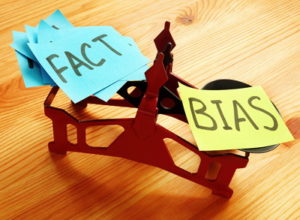 Elsewhere on this site you can read in-depth articles all about the various cognitive fallacies that we fall for when placing a bet. In many ways, they are all influenced by the optimism / desirability bias, given that it tends to push us towards believing what we want to believe rather than what the cold hard facts of a bet tell us we should bet looking out for. It’s important have a sense of the cognitive biases your often fall foul of.
Elsewhere on this site you can read in-depth articles all about the various cognitive fallacies that we fall for when placing a bet. In many ways, they are all influenced by the optimism / desirability bias, given that it tends to push us towards believing what we want to believe rather than what the cold hard facts of a bet tell us we should bet looking out for. It’s important have a sense of the cognitive biases your often fall foul of.
Imagine an Evertonian planning to bet on a football match between Liverpool and Barcelona. Despite the fact that Barcelona are missing their key players and Liverpool are unbeaten in their last ten matches, the Evertonian wants Barcelona to win and so will base their betting decisions on that rather than the reality of the situation. They aren’t analysing the reality of the situation in the way that they should be as a bettor.
Unknown Factors
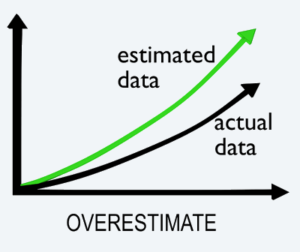 There is a tendency amongst some people to ignore the information that they don’t have as if it doesn’t exist. We all know plenty about ourselves because information on that is readily available, meaning that we sometimes underestimate the risk that can be caused by unknown factors. When it comes to betting, this translates into people either over-estimated or under-estimating the teams that they know about.
There is a tendency amongst some people to ignore the information that they don’t have as if it doesn’t exist. We all know plenty about ourselves because information on that is readily available, meaning that we sometimes underestimate the risk that can be caused by unknown factors. When it comes to betting, this translates into people either over-estimated or under-estimating the teams that they know about.
Imagine a Charlton Athletic fan betting on the outcome of the FA Cup. They might know about the top Premier League teams because of newspaper coverage, but their knowledge of other sides in the competition might be limited. Consequently they over-estimate how well Charlton will do, fooled by their optimised belief that the Addicks will be better than most teams they come up against.
Your Own Mood

When you’re in a good mood, you’re more likely to view the world through an optimistic prism. There’s always a risk that this will lead you to misjudge bets that you’re considering placing, with your optimism feeding in to your feelings about the likelihood of these bets being winners. It’s not easy to escape falling into this trap, which requires you to think logically and sensibly about the bets that you’re about to place.
It seems obvious, but being in a positive mood when you’re placing a wager might well lead you to placing a bet based on what you desire the outcome to be rather than what it is likely to be. This is especially likely if you’ve enjoyed a streak of winning bets recently, leading you to feel as if you can do no wrong with your wagers and therefore imagining that betting on your desired outcome will somehow help the team or person that you’re betting on.
Can You Avoid The Optimism Bias?
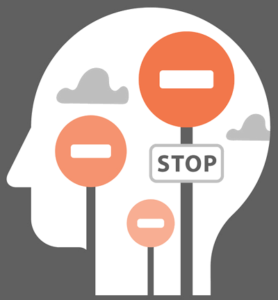 The obvious question to ask when it comes to the optimism bias is whether it is possible to avoid falling foul of it. Given the extent to which it appears to be a psychological condition that affects compulsive gamblers the worst, the obvious answer would be no. Yet there’s also an argument that those bettors that are not what would be described as ‘problem gamblers’ can take certain measure to avoid falling into the optimism / desirability bias trap.
The obvious question to ask when it comes to the optimism bias is whether it is possible to avoid falling foul of it. Given the extent to which it appears to be a psychological condition that affects compulsive gamblers the worst, the obvious answer would be no. Yet there’s also an argument that those bettors that are not what would be described as ‘problem gamblers’ can take certain measure to avoid falling into the optimism / desirability bias trap.
Whilst optimism is generally considered to be a good trait for people to have, it is not a particularly useful one for bettors. The best gamblers are those that are able to look at cold hard facts and weigh up the pros and cons of them before placing a bet that is influenced by reality. Looking at something dispassionately is the best way to place a bet in a manner that suggests that you’re more likely to win, because you’re not being influenced by emotion.
One of the key things to remember is that sports are, by their very nature, unpredictable. How many teams have we been absolutely certain that a wager that we were placing would be a winner, only to see the opposition outperform our favoured team and take the win? The only thing that we can do as a punter is make sure that we’ve done our research so that our bet is as solidly based on the facts as possible.
It does us know favours to want a particular outcome and bet on that accordingly. Instead, we need to work hard to weigh up the various outcomes, see which ones are favoured by the facts that we have available to us and bet on that. One of the main ways that we can avoid falling foul of the optimism / desirability bias is by literally writing down what we would like the outcome of an event to be before we think about which bet we’re going to place on said event.
After that, do all of your research and decide upon the wager that you want to place. Just before placing it, check it against your desired outcome and make sure that your thinking hasn’t been influenced by what you want to happen and has only taken into account what you actually think will happen. Ask yourself whether you’ve genuinely weighed up all of the evidence, or whether you’re turning a blind eye to something for the simple reason that it goes against what your preference for the outcome is.
